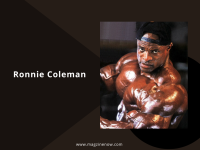Sleep apnea is a serious sleep disorder that can have profound effects on your physical and emotional health. If left untreated, it can lead to serious medical issues, including cardiovascular disease and stroke. Fortunately, with the help of home sleep studies and CPAP therapy, people in Australia can now access reliable diagnosis and treatment for sleep apnea. In this article, we will discuss everything you need to know about home sleep studies and CPAP therapy in Australia.
Table of Contents
Introduction
If you’ve been diagnosed with sleep apnea, your doctor may have recommended a home sleep study. Sleep studies are an important part of diagnosing and treating sleep disorders.
A home sleep study is a test that measures how well you sleep. It records your breathing, heart rate, and oxygen levels while you sleep. This information can help your doctor determine if you have sleep apnea or another sleep disorder.
CPAP therapy services are the most common treatment for sleep apnea. CPAP stands for continuous positive airway pressure. CPAP machines deliver air through a mask that fits over your nose and mouth. The air pressure keeps your airways open so you can breathe normally during sleep.
CPAP therapy can be an effective treatment for sleep apnea, but it’s not always easy to adjust to. It takes time and effort to get used to wearing a mask and using a CPAP machine. But with patience and support from your healthcare team, you can learn how to use CPAP therapy effectively.
What is a Home Sleep Study?
A home sleep study is a test used to diagnose sleep apnea. It is usually done in people who have not been helped by other treatments, or in whom the cause of their sleepiness is not clear.
A home sleep study is usually done over one or two nights. You will be asked to wear a small device that monitors your breathing and other body functions while you sleep. The device is easy to use and is not uncomfortable.
The results of a home sleep study can help your doctor find the best treatment for you. If you have sleep apnea, your doctor may recommend a continuous positive airway pressure (CPAP) machine.
What to Expect During a Home Sleep Study
A home sleep study is a convenient and comfortable way to assess your sleep apnoea. It involves spending one or two nights in your own bed, hooked up to sensors that measure your breathing, heart rate, oxygen levels, and body movements. The data from the sensors is then used to diagnose sleep apnea and determine the best treatment for you.
CPAP therapy is the most common treatment for sleep apnea. It involves wearing a mask over your nose and mouth while you sleep. The mask is connected to a machine that pumps air into your lungs, keeping your airway open and preventing snoring and apnoea.
If you are considering a home sleep study or CPAP therapy, here are some things you can expect:
- A consultation with a sleep specialist to discuss your symptoms and medical history.
- A physical examination includes an assessment of your weight, neck circumference, and nasal passages.
- A referral for a home sleep study or CPAP trial.
- Instructions on how to prepare for the home sleep study or CPAP trial. This may include avoiding caffeine and alcohol before bedtime, sleeping on your back, and using earplugs or an eye mask to reduce distractions.
- Setting up the equipment for the home sleep study or CPAP trial. This usually takes about 30 minutes.
- Wearing the equipment for the duration of the study or trial (usually one or two nights).
Benefits Of A Home Sleep Study
There are many benefits of home sleep studies, which is why they are becoming increasingly popular. Here are some of the main benefits:
1. Home sleep studies are much less expensive than traditional sleep studies conducted in a laboratory setting. This is because you do not need to pay for the use of specialized equipment or for the time of a sleep technician.
2. Home sleep studies are more convenient as you can conduct them in the comfort of your own home. This means that you do not have to travel to a sleep laboratory and can carry on with your normal daily routine.
3. Home sleep studies provide more accurate results than traditional lab-based studies as they eliminate any external factors that could interfere with the results. This is because you are able to sleep in your natural environment undisturbed by noise or light.
4. Home sleep studies can be conducted over multiple nights, which allows for a more comprehensive assessment of your sleep patterns. Traditional lab-based studies usually only last for one night.
5. The results of home sleep studies are usually available much sooner than those from traditional lab-based studies, which can take several weeks to process.
How Is CPAP Therapy Used To Treat Sleep Apnea?
CPAP therapy is a treatment for sleep apnea that involves using a machine to pump air into your lungs while you sleep. The air pressure keeps your airway open so that you can breathe properly.
CPAP therapy is the most effective treatment for sleep apnea, and it is often the first treatment option recommended by doctors. However, CPAP therapy is not always successful in treating sleep apnea, and some people may need to try other treatments before finding one that works for them.
If you are considering CPAP therapy, it is important to talk to your doctor about all of your options and what will work best for you.
What Are The Benefits Of CPAP Therapy?
CPAP therapy is a treatment for sleep apnoea that involves using a machine to pump air into your lungs while you sleep. It is the most effective treatment for sleep apnea and can significantly improve your quality of sleep. CPAP therapy can also help to reduce your risk of developing heart disease, high blood pressure, and stroke.
Where Can I Find CPAP Therapy In Australia?
There are many places to find CPAP therapy in Australia. Your doctor can refer you to a sleep specialist who can help you with a sleep study and CPAP therapy. There are also many sleep clinics across Australia that can help you with your CPAP therapy. You can also find CPAP therapy online through many different websites.
FAQs About Home Sleep Studies And CPAP Therapy In Australia
1. What is a home sleep study?
A home sleep study is a diagnostic test that is used to diagnose sleep apnea. It is an overnight test that is performed in the comfort of your own home.
2. Who can benefit from a home sleep study?
Home sleep studies can be beneficial for people who have difficulty falling asleep or staying asleep, people who snore loudly, or people who wake up feeling tired.
3. How does home sleep study work?
During a home sleep study, you will be asked to wear a comfortable mask over your nose and mouth. The mask will be connected to a small machine that monitors your breathing during the night.
4. What are the benefits of a home sleep study?
Home sleep studies offer many benefits, including convenience, comfort, and accuracy. Home sleep studies are also less expensive than traditional sleep studies performed in a hospital setting.
5. Are there any risks associated with a home sleep study?
There are no risks associated with home sleep studies. The only potential side effect is mild discomfort from wearing the mask during the night.
Conclusion
Home sleep studies and CPAP therapy are important tools in diagnosing and treating sleep-disordered breathing. We hope that this article has given you a better understanding of what they involve in Australia, as well as how to prepare for them and where to find more information. By arming yourself with the right knowledge, you can ensure that your home sleep study and CPAP therapy journey is an informed one – which should provide you with some peace of mind during these uncertain times.
Also Read: The Ultimate Guide To Finding The Right Rental Software For Your Business



















